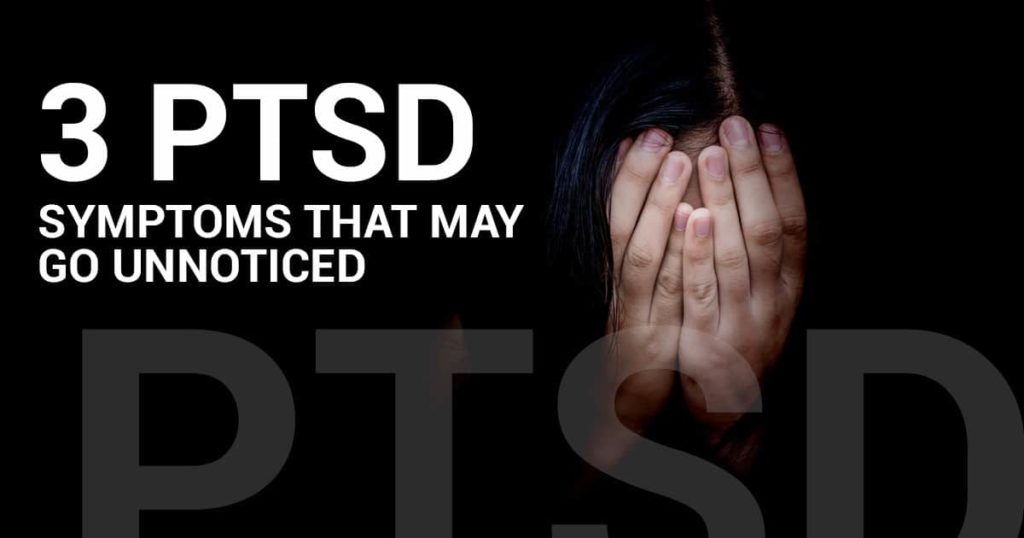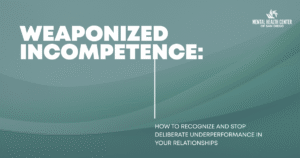Post-Traumatic Stress Disorder or PTSD is a psychiatric disorder. PTSD symptoms occur after exposure to a traumatic event that can include a natural disaster, a major accident, war or combat, rape or sexual abuse, violence or physical abuse, having a serious medical conditions, or domestic abuse.
What is PTSD?
PTSD can create intense and distressing thoughts and feelings that relate to the traumatic experience or painful memory long after the event ends. In some cases, you can be diagnosed with PTSD even if you didn’t have first-hand exposure to trauma. Instead, you might learn about the violent death of someone you love, for example.
- It’s natural if we experience something fright-inducing and traumatic to feel scared and to respond emotionally and physically to that fear.
- Our fight-or-flight response is how we react to something threatening or harmful, and it’s a way to protect ourselves.
- Most people will experience something traumatic at least once in their life, and the majority will then recover. Sometimes this is called a normal stress response.
- A normal stress response usually requires management through support from your loved ones or maybe therapy sessions.
- If you’re dealing with a normal stress response, you should begin to feel better within a few weeks.
We often associate diagnosable PTSD, a mental health disorder, with military service and military veterans, especially combat veterans. There are many other risk factors, however.
When you continue to experience problems, you might be diagnosed with PTSD. If you have PTSD, you may feel stress or anxiety even when you’re in no immediate danger.
PTSD is related to other anxiety mental disorders, requiring treatment from a mental health professional.
Types of PTSD
There are several different types of PTSD or subcategories. These include:
- Acute stress disorder: This isn’t the same as post-traumatic stress disorder, but it can occur in trauma survivors who experience what they feel is a life-threatening event. Acute stress disorder, when it’s untreated, can develop into PTSD. Treatment options for acute stress disorder include individual and group therapy and medication.
- Uncomplicated PTSD: One of the types of PTSD, with uncomplicated PTSD, there’s a link to a single significant and traumatic memory rather than several events. Uncomplicated PTSD tends to be the simplest to treat. Symptoms of PTSD that are uncomplicated include avoidance of reminders of the trauma, event flashbacks, and mood changes.
- Complex PTSD: This type of post-traumatic stress disorder results from multiple traumatic events. For example, repeated exposure to abuse as a child or domestic abuse in a marriage can lead to complex PTSD. When you have complex PTSD, misdiagnosis is common. Often people with complex PTSD are diagnosed with borderline personality disorder, and it’s commonly associated with co-occurring disorders like substance abuse. The misdiagnosis of complex PTSD means that people often go much longer without adequate treatment.
- Comorbid PTSD: This is a term that refers to a situation with co-occurring disorders. Co-occurring disorders are when you have more than one mental health disorder. Often, we hear it used in the context of substance use disorders. You might, for example, have PTSD and alcohol addiction. PTSD is often linked to substance abuse because people try to self-medicate the symptoms. You could also have posttraumatic stress disorder and another anxiety disorder.
Mental Health Center of San Diego
PTSD Symptoms
General symptoms of PTSD, according to the American Psychiatric Association, include:
- Intrusive memories and thoughts of the event
- Reliving the event like it’s happening again, known as flashbacks
- Having upsetting nightmares or dreams about the event
- Emotional distress or physical reactions to reminders of the traumatic event
- Avoidance symptoms include not thinking or talking about the traumatic situation
- Negative thoughts about yourself or the world
- Feelings of hopelessness
- Memory problems, particularly surrounding the event
- Feeling numb
- Detachment from loved ones
- Loss of interest in things you previously enjoyed
- Being on guard or easily startled
- Self-destructive behavior like drinking and driving
3 PTSD Symptoms That May Go Unnoticed
The following are some of the potential PTSD symptoms that may not be as apparent or obvious but could indicate you or a loved one are experiencing this mental health disorder.
Mental Health Center of San Diego
1.) Problems Focusing
One of the symptoms of several mental health disorders that people frequently don’t realize is brain fog or problems focusing and concentrating. When your mind is constantly ruminating on a traumatic event or sees everything as a potential threat, you don’t have the space in your mind to think about anything else.
That can make it challenging to be productive at home or work. Even relatively simple tasks, like household chores, can seem very overwhelming.
Problems focusing can be associated with other mental health disorders like depressive disorder, so it can be harder to pinpoint the reason for this symptom.
2.) Emotional Detachment
Emotional detachment is a relatively common symptom of PTSD, but at the same time, one that tends to go unrecognized. When you’re emotionally detached, you may feel like you can’t fully engage with your feelings or the feelings of people around you.
You may notice that you have difficulty opening up, your intimate relationships are challenging, and you avoid physical or sexual content. You may also have ambivalence towards others and low self-esteem.
Along with being detached from relationships and people, you could also detach from other things in your life. For example, you may lose interest in hobbies you once loved rather than giving you energy or excitement. They might sap your energy.
3.) Mood Symptoms
Mood swings and irritability can be something we all experience from time to time, but these symptoms can be more significant in people with PTSD. You may feel okay or even happy one minute, and the next to be upset. These mood swings may frequently occur in your daily life with this mental health condition.
You could experience an extreme reaction to a seemingly minor inconvenience long after traumatic exposure. These reactivity symptoms and responses cause you to lash out at the people around you. Lashing out further damages your relationships with people who care about you.
Mental Health Center of San Diego
Is PTSD Curable?
It’s not accurate to say that PTSD is curable. The condition is caused by trauma leading to serious symptoms affecting functionality. While we don’t necessarily view mental health conditions as curable, PTSD is highly treatable. You can see your symptoms get significantly better or resolve altogether with the proper treatment. You may also find that your quality of life is much better after treatment.
The treatment for PTSD usually focuses on therapy, and there are also PTSD medication options. The therapies most frequently used as PTSD treatment include:
- Behavioral therapy can help you identify and change negative thoughts and feelings. When you participate in trauma-focused CBT, including cognitive processing therapy, you can reframe your traumatic experiences and develop healthy coping mechanisms.
- Exposure therapy requires you to face traumatic memories directly instead of avoidance, but you encounter them safely.
- Eye movement desensitization and processing or EMDR uses eye movements that are therapist-guided to help you reframe and then process your traumatic memories.
PTSD pharmaceutical treatment most often falls into the category of antidepressant medication. Taking an antidepressant for PTSD can help improve mood and concentration and alleviate many symptoms. You may also use sleep aids and anti-anxiety medicines, but not as commonly as antidepressants.
You can modify your lifestyle that will help even your Post Covid PTSD recovery. For example, having positive interactions with people you care about and eating and sleeping well can help your symptoms. Some people also integrate alternative therapies into their treatment plan and find success with that.
If you’d like to learn more about PTSD symptoms and treatment and general mental health services, please call (858) 258-9883 to reach out to the Mental Health Center of San Diego team.









